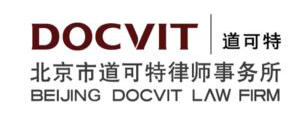Equity financing is vital to the development of startups, usually making a difference in their survival. Therefore, investors are often praised as “white knights” of investee businesses. The best vision of financing is that the investee leverages the investor’s strengths, and the investor empowers the development of the investee, growing together.
Barbarians on white horses
Vision is not reality. Not all “investors” are knights. The “Vanke-Baoneng battle” for de facto control over Vanke became a long-lasting high-stakes capital game in China, labelling the Baoneng family, a well-known investor, as a “barbarian”.
Another example is the South Beauty case. As South Beauty failed to go public, its de facto controller, Zhang Lan, had to sell shares to the CDH-designated CVC Capital under the combined effect of the buyback, the drag-along right and liquidation preference clauses in the valuation adjustment mechanism (VAM) agreement, using the proceeds to pay for the buyback from CDH.

Senior Partner
DOCVIT Law Firm
Eventually, Zhang Lan received no cash gains and lost the bulk of her shares, while CDH recovered all its investment and CVC Capital acquired de facto control over South Beauty for a trivial consideration. In 2015, Zhang Lan ceased being the director of South Beauty and completely lost control of the business she founded.
Vanke and South Beauty were exposed to significant legal risks in equity financing, so startups that are generally unfamiliar with the capital market should take precautions against such risks.
Early management of legal risks in equity financing should be done before a financing deal is closed. Before entry into a contract, it is mainly to assess the capital strength and true intention of the investor. During entry into a contract, it is mainly to identify contractual risks, and design the terms and conditions.
Pre-contractual risks
Infringement disguised as investment.
Pre-investment due diligence is a common industry practice. Some investors take advantage of the process to disclose important information about the target company, such as trade secrets and technical know-how, to competing businesses in which they have invested, or other related parties, and some even act under the instruction of competing businesses.
In this regard, startups should examine their technical know-how and trade secrets to prevent any leaks. If the disclosure of such information is unavoidable, a confidentiality agreement should be prepared and signed in advance.
Protracted negotiation delays financing.
Many investors have limited funds and must raise funds for themselves first, which may delay the negotiation process and even require the signing of exclusivity clauses with the investee. As such, startups unilaterally take a high opportunity cost risk.
If such exclusivity clauses are necessary, two-way obligations should be imposed to reasonably share the opportunity cost risk.
Seeking benefits fraudulently disguised as investment.
A few investors do not have the investing capacity, only seeking benefits in the form of financial advisory fees or due diligence fees. In this regard, the investee may: (1) investigate the investors’ track record of investments and determine whether it has the investing capacity; and (2) refuse to pay any upfront fees, for genuine investors will not charge such fees.
Risks in signing the contract
Validity of the VAM agreement.
Generally, the VAM agreement is considered valid only when it is signed by the de facto controller or shareholder of the investee. Therefore, some argue that the VAM agreement must be invalid if the investee is a party to the VAM agreement in an attempt to shake off responsibility.
In this regard, the Minutes of the National Courts’ Civil and Commercial Trial Work Conference clearly states that, “the people’s court will not support the target company’s claim for invalidity of the VAM agreement simply on the ground that any share buyback or monetary compensation clauses exist, as long as there are no legal grounds to render VAM agreement invalid”. Therefore, the fact that the target enterprise itself is the subject of contracting can no longer necessarily lead to the invalidity of the VAM agreement.
Startups should: (1) try to bet on more controllable conditions such as performance data, and avoid using conditions with too many variables, such as listing; and (2) as the agreement name suggests, the equity valuation adjustments should be used where possible to avoid the use of buyback, retail and preferential liquidation rights.
One-vote veto clause.
If the investor requires a one-vote veto, it may adversely affect the target company’s autonomy in business operations, or pose the risk of them losing control. The one-vote veto should be restricted in the investment agreement and articles of association so as not to affect the investor’s capital safety or autonomy of business operations, and not to change the de facto controller.
Buyback, drag-along rights and preferential liquidation clauses.
Some investors lock in the backflow of investment funds through buyback clauses and even require fixed income. In this way, the investor enjoys shareholder’s rights while avoiding the shareholder’s risks, but the investee bears a rigid payment burden that should not exist.
Some investors use the buyback in tandem with the drag-along right and the preferential liquidation right, taking advantage of the de facto controller’s inability to buy back and acquiring shares at a disproportionally low cost.
To avoid any trap, the startup may set itself as the buyback entity, and make full use of article 35 of the Company Law, which provides that “shareholders shall not withdraw their capital contributions”, or article 142 on share buyback to limit the abuse of the buyback clause.
In addition to the contractual relationship formed under the investment agreement, the investor and the target company are also in a legal relationship under the Company Law. Shareholders that want any monetary compensation from the target company can only have such compensation paid out of the company’s distributable profits; otherwise, it may constitute a withdrawal of capital contribution. Based on this provision, restrictions can be placed on the triggers and price of buyback.

For a startup to buy back its shares, it must first go through the capital reduction procedure; otherwise, a violation of article 35 of the Company Law will occur. The capital reduction resolution must be approved by shareholders representing at least two-thirds of the voting rights, and must be announced to the creditors of the company under section 177 of the Company Law, with a guarantee provided.
Zou Chunpeng is a senior partner at DOCVIT Law Firm

No.5 East Third Ring Middle Road
Beijing 100020, China
Tel: +86 10 8586 1018
Fax: +86 10 8586 3605-8006
E-mail: zouchunpeng@dtlawyers.com.cn
www.dtlawyers.com.cn





















